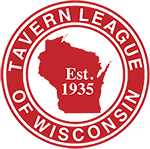Opposition to LRB-1140 – Alcohol Beverage Delivery
The Tavern League of Wisconsin, Wisconsin Beer Distributors Association, and Wisconsin Wine and Spirit Institute respectfully urge lawmakers to oppose LRB-1140. While the delivery of alcohol beverages can be permitted in a responsible manner, this legislation falls short of that goal because it not only increases the risk of underage drinking and illegal sales to minors, it removes local enforcement tools.
Alcohol is not an ordinary commodity – there’s great responsibility in determining who, what, where, and how many can sell and serve the products to consumers. An alcohol retail license is a privilege granted to a specific person. While the state sets minimum requirements for issuing licenses, alcohol licensing is largely locally governed in Wisconsin. When problems arise, such as underage drinking and illegal alcohol sales, municipalities have clear oversight and authority to suspend, revoke, or choose not to renew licenses.
License conditions are some of the most effective tools that a municipality can use to ensure that the licensee follows the community’s standards.
Unfortunately, this legislation fails to provide local governments with proper oversight and opens the door to unlicensed, unaccountable third-party delivery companies. Furthermore, it disrupts the ability of law enforcement to enforce alcohol beverage laws, which directly results in negative public health outcomes and inefficient tax collection.
Experiences in other states indicate that removing the requirement for face-to-face alcohol sales at licensed retailers has increased the risk of underage drinking and illegal sales to minors. Noncompliance by third- party delivery companies has been well documented. Last November, two of the nation’s largest delivery companies were cited for selling and delivering alcohol to underaged college students in the Boston area. In California, an investigation by the Department of Alcoholic Beverage Control revealed third-party delivery services were routinely delivering alcoholic beverages to minors – a staggering 80% of deliveries were noncompliant with ID-checking requirements. Regulators determined delivery service employees were largely ignoring guidelines setup to prevent the sale of alcohol to minors. The state of Oregon conducted a similar investigation and found more than a third of deliveries took place without checking ID.
Although efforts to improve upon legislation from last session have been made, LRB-1140 fails to resolve a number of deficiencies with creating a new third-party alcohol beverage delivery permit.
Thank you for considering our position.
